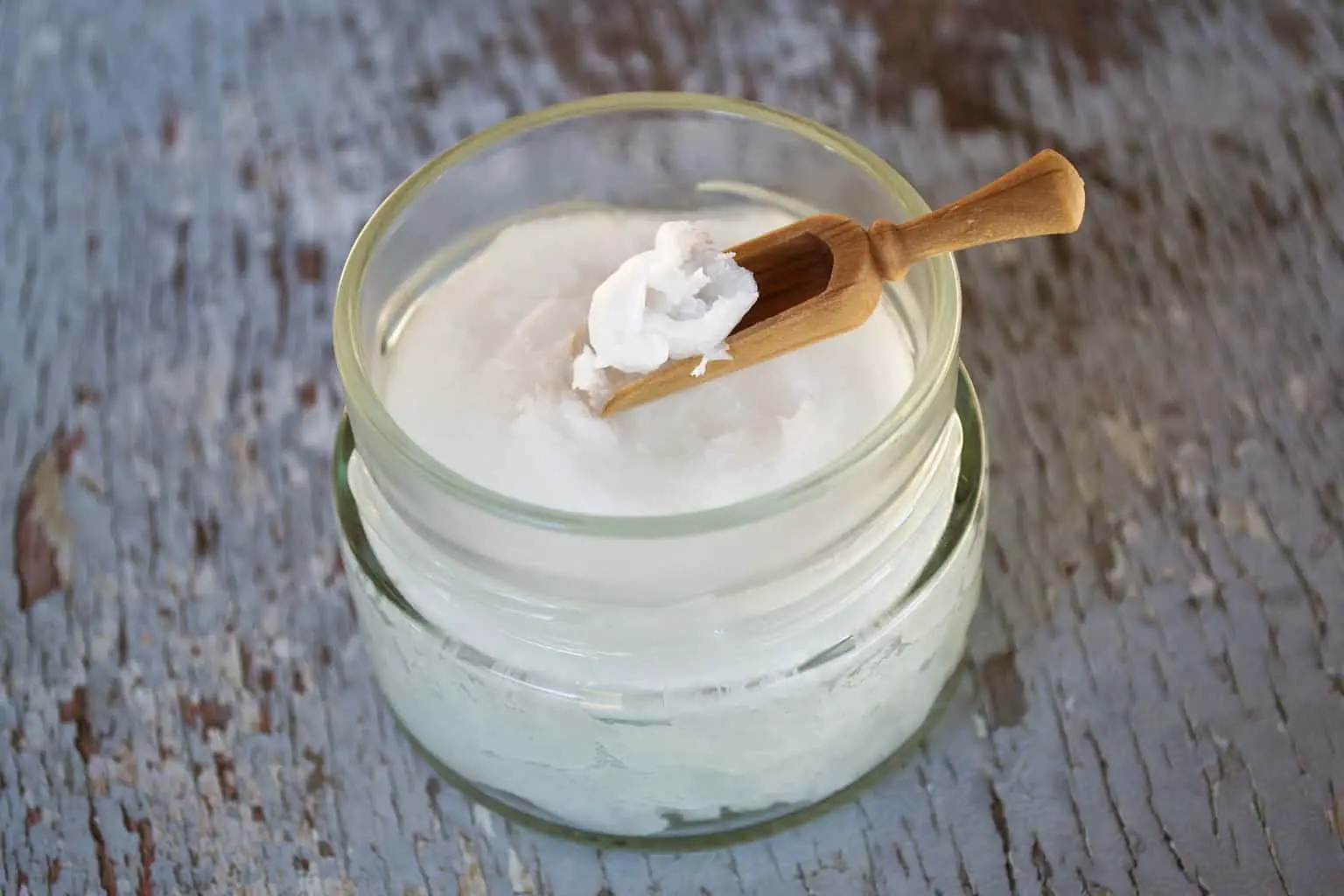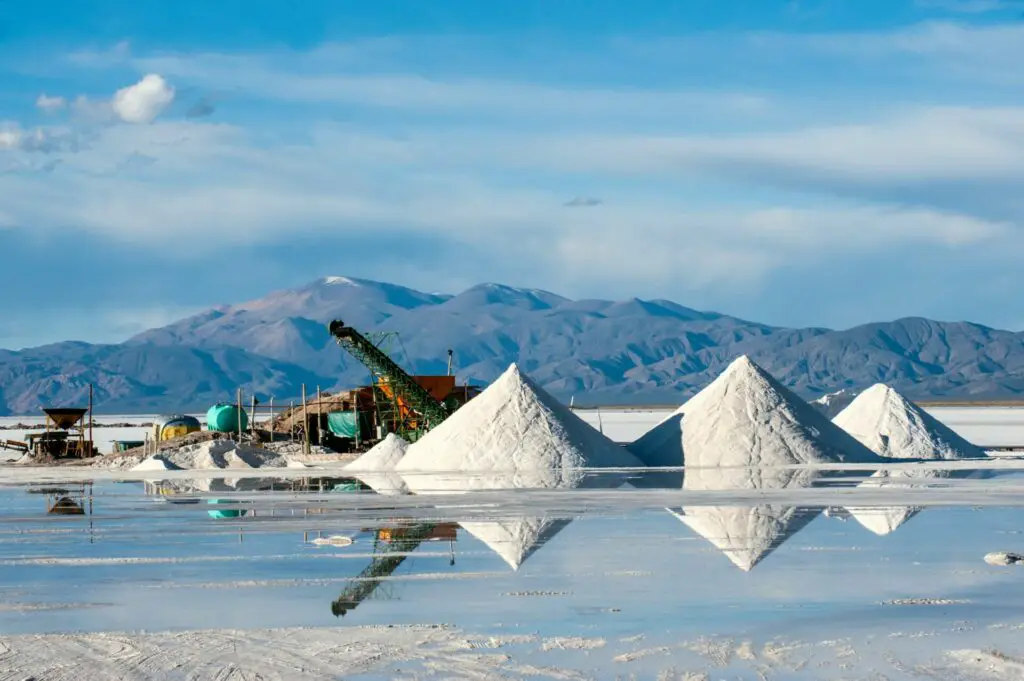You probably have olive oil in your pantry. Coconut oil may be part of your beauty routine. Your haircare products are probably infused with jojoba oil.
Now, there is another oil for healthy, sustainable living.
Babassu oil has the potential to change the way you live and feel.
In this article, we will look at the following topics in more depth:
- Babassu oil overview
- Uses and benefits
- Sustainability
- Safety considerations
What Is Babassu Oil?
Given the number of oils available, it would be understandable if you have not heard of babassu oil. Babassu oil has gained widespread recognition in recent years.
With a transparent yellow coloring, babassu oil is closely related to coconut oil. This is because it also comes from a palm tree.
Specifically, babassu oil derives from palm trees native to the Cerrado region of Brazil.
The palm trees in Cerrado produce small nuts that look like a miniature coconut. When these nuts are harvested, oil can be extracted. This is babassu oil.
To make the oil, the nut must be broken open. This allows the meat to be accessed. From here, the meat is cold-pressed.
During this process, the oil is squeezed out. It is carefully collected and refined. While it used to be sold or traded locally, babassu oil has now found an eager international market.
Despite the fact that babassu has been a traditional resource for locals in Brazil, it is now in growing demand worldwide.
North American markets are particularly strong, but demand is also up in areas like China and India.
Therefore, if you have not heard of babassu oil yet, you are likely to hear more about it soon.
What Can I Use Babassu Oil For?
When considering whether or not to incorporate babassu oil into your daily routine, you first have to explore the full range of uses for this natural oil.
Skincare
One of the first applications for babassu oil is in skincare. Babassu oil has a unique melting point that allows it to soften upon skin contact. This makes it very easy to apply across the body.
Unlike other oils, which can feel heavy or cling to the skin, babassu oil is light.
It moisturizes without a greasy trail. It absorbs quickly and is not noticeable to the touch.
Moreover, babassu oil will not block your pores. This means there are no side effects like breakouts or acne when you use this oil.
Many people also report a cooling sensation from babassu oil. It could even be called refreshing. For these reasons, babassu oil is even appropriate for facial coverage.
Babassu oil has specific anti-inflammatory properties. Since it is composed of 70 percent lipids, it has natural restorative abilities.
This means that babassu oil is perfect for dry skin, eczema, rashes and other skin conditions.
Hair Care
Given the moisturizing properties of babassu oil, it is probably no surprise that it is a successful treatment for hair.
The fact that it is lightweight and nourishing means that it will soften the hair without a greasy aftermath.
In particular, babassu oil is garnering attention for its applications with natural hair.
Women of color often struggle to find the best products for their hair texture, and babassu oil is proving to be highly versatile.
Babassu oil can strengthen textured hair without stripping the hair of its natural shape. Many people with curly hair see defined texture after using babassu oil products.
For this reason, brands that use babassu oil are quickly earning cult-like followings. Just look at the success of brands like Teadora Beauty or Anita Grant.
These brands rely on natural ingredients to make powerful and effective products for your skin and hair.
Some of the brand’s best-selling products just happens to be made from babassu oil.
While hair products are often associated with women, there are other hair applications for babassu oil for men. Babassu oil has become extremely popular for beards.
This way, babassu oil can help facial hair retain a smoother texture while providing a soothing sensation for the skin underneath.
Healing
Babassu oil has a variety of medicinal properties.
As mentioned earlier, babassu oil has been used as a traditional healing method for Brazilian locals for years.
However, babassu oil is not an unproven cure.
Instead, babassu oil has been repeatedly shown to have substantial healing applications. Because the oil is flush with antioxidants, it can be used on the skin to repair cellular damage.
Interestingly, babassu oil works as an antibacterial. This means that it can actually kill some harmful bacteria. This includes the bacteria that causes deadly staph infections.
With its anti-inflammatory properties, babassu oil can also be applied to wounds. In this context, the oil can promote healing.
Some studies show that babassu oil can heal wounds faster and better.
Specific uses can include the following:
- Skin irritations
- Skin conditions
- Wounds
- Inflammation
- Stomach problems
Cooking
Finally, babassu oil is used in cooking.
According to cooking experts, babassu oil can be used interchangeably with oils like coconut oil. Its light texture is silky and seamless in dishes.
There is some evidence that it could contain health benefits. Babassu oil is composed of different acids, which fight infection, reduce inflammation and more.
In particular, it is a great source for lauric acid, stearic acid and oleic acid.
As for the taste, most people do not notice a difference with babassu oil. This means it is easy to work babassu oil into your diet.
What Does Babassu Oil Smell Like?
Many oils are known for their scents. While babassu is not an essential oil like lavender, its smell still matters. No one wants a heavy scent on their skin or in their hair.
Fortunately, this is not the case with babassu oil. Babassu oil is noted for its light texture and smell.
Other oils have a nutty or beachy smell, but babassu oil is practically odorless after it has been applied. Therefore, babassu oil can be applied to the skin or hair and then forgotten.
With babassu oil, you get all the benefits of a powerful oil without any of the side effects. This is another reason why this oil is gaining such popularity in worldwide markets.
What’s the Difference Between Babassu Oil and Coconut Oil?
Because babassu oil also comes from a palm tree, it is most often contrasted with coconut oil. Both also have similar applications in beauty, health and cooking.
Even with these similarities, there are key differences.
The first difference is texture. Most of the time, oil is thought to be thick and heavy.
However, babassu oil is distinctive. Compared to coconut oil, babassu oil is very lightweight.
The applications for lightweight oils are vast. In beauty, people find that babassu oil can be absorbed into the skin faster and more completely.
Coconut oil leaves a greasy trail, but babassu oil minimizes such effects.
More specifically, when you look at the composition of the two oils, you can note some key points of comparison.
Coconut oil feels heavier with good reason. It is higher in fats, food energy and calcium.
Babassu oil, on the other hand, has fewer saturated fats. It is also higher in key nutrients like vitamin E.
In general, these oils are quite similar. Both can be used for moisturizing and sealing, and both can be stored safely for long periods of time without becoming rancid.
Therefore, it is no surprise that there are many overlapping uses for coconut oil and babassu oil.
Only by understanding the differences and advantages of each is it possible to make informed decisions that suit your needs.
Is Babassu Oil Palm Oil?
Babassu oil is similar in certain aspects to palm oil, but there are key distinctions. First, we have to look at the source.
As explained previously, babassu oil is made from the seeds of the babassu palm grown in Brazil.
Palm oil, on the other hand, is extracted from the pulp of the oil palm fruit, which is grown in areas of Africa and Asia.
Today, the vast majority of palm oil comes from Malaysia and Indonesia.
While babassu oil is just now growing in popularity on the worldwide market, palm oil already maintains dominance.
It is used widely in food production. Data shows that half of all packaged foods sold in normal supermarkets contains palm oil.
When it comes to functionality, palm oil and babassu oil are quite similar.
Both oils are lightweight and have a mild taste. This makes them great for cooking.
Like babassu oil, palm oil is high in stable, saturated fats and nutrients like vitamin E. Both can be used interchangeably with olive oil or coconut oil.
However, because palm oil is more widely grown, it tends to be more affordable. It is also the most efficient oil crop, meaning it yields more oil per land area than any other alternative.
Statistics show that palm oil provides 35 percent of the world’s demand for vegetable oil while only requiring 10 percent of the land usage.
But this is also part of the problem with palm oil. Palm oil is in such high demand that its growth has been linked to deforestation and a decline in biodiversity.
In this regard, the fact that babassu oil can be an apt substitute for palm oil is incredibly important as it may be a more eco-friendly and sustainable alternative to palm oil.
Is Babassu Oil Sustainable?
In this discussion, it is easy to see how useful babassu oil can be.
Even so, it is vital to look at babassu oil from a sustainability perspective. It is important to invest in products that are good for you and the world.
Issues of Supply
The demand for babassu oil is only expected to grow. As consumers search for healthier oils and food usage increases worldwide, alternative oils will be important to the market.
Because of this, most projections show the market expanding rapidly in the years to come.
This demand must be matched by the supply in order to create sustainability. One drawback of babassu oil is that it is grown in very select regions.
Because babassu oil only comes from palm trees in northeastern Brazil, it is not as easy to sustain.
However, the way the palm trees are grown in this region offers much hope.
The cultivation of the palm tree is very established and integrated into the way local communities function and thrive.
Overall, the best estimates suggest that there are 18 million hectares dedicated to babassu growth. Most of this is situated near the Amazon basin.
Better still, each palm tree has a bountiful harvest. In a single harvest, a babassu tree can yield more than 500 nuts.
On average, a babassu palm will start producing nuts after seven years. When properly maintained, these trees can be fruitful for 40 years or more. In a single year, one tree may produce 2,000 nuts total.
The problem is that the demand for babassu oil is affecting the way supply is managed.
While babassu has traditionally been locally produced, there is evidence that a more aggressive agricultural industry is starting to take over.
This is not only squeezing out smaller, local growers, but it is affecting the quality of the supply. More land is becoming privatized.
Other threats come from social expansion. As cities continue to develop, more land is being gobbled up.
This deforestation is threatening the habitat of the babassu tree and could diminish the overall sustainability of the oil.
Harvesting Methods
One of the best ways to ensure that babassu oil is sustainable is to work with brands and growers that utilize sustainable harvesting methods.
Babassu production has suffered since 1980, but there have been many promising initiatives to combat the problems facing the industry.
One great example is Tobasa Bioindustrial. Tobasa is a certified B corporation that got its start back in the 1960s. Its sole mission is to revitalize the babassu industry for more sustainable outcomes.
Therefore, the aim of the corporation is twofold. First, Tobasa looks into new technologies to increase the efficiency of the babassu harvest.
Then, the corporation works to find the best buyers for all parts of the plant.
The mission of Tobasa is really what sustainability is all about. Sustainability seeks to lessen the environmental impact and promote sales while boosting longterm industry stability.
The work being done is impressive. With sustainable methods, Tobasa currently works with suppliers in 120,000 hectares across the region.
It has expanded its reach by more than 60 percent in recent years and now supports thousands of suppliers.
This has a dramatic, trickle-down effect on the communities and their local habitats. As suppliers make more money and supply is stabilized, the environmental impact also continues to improve.
Just look at the carbon outputs coming out of these areas. Because Tobasa offers incentives to growers to restore lost groves, there is more plant life in the area.
This plant life supports natural air cycles. This has reduced carbon dioxide outputs substantially in the region for worldwide environmental gains.
Tobasa’s influence shows that progress is possible. Babassu oil can be grown sustainably for the benefit of all.
Ethical Land Use
Questions of sustainability must also look at the local populations affected by babassu production. This is especially important for babassu palms since the local communities are so dependent upon its growth.
Entire communities are formed around the harvesting of babassu nuts. It is estimated that more than 100,000 families live on a subsistence level with this tree.
As demand for babassu oil goes up, less ethical production cycles are being employed. Private land is fenced off. Land is being used for animals instead of plant growth. Other, more profitable farming ventures have taken over.
In this picture, questions of efficiency and profit must be put in context. The ethics of taking land traditionally used to support local communities is also a relevant consideration when looking at babassu oil.
The situation is rapidly becoming dire in some areas. However, there are organizations dedicated to protecting local communities while also promoting industry growth.
Just look at the work being done by Sabara Group. They have a Socio-Biodiversity Valuation Program.
With this program, Sabara is able to target local communities that grow babassu and provide key support. This support allows these communities to continue production and get a fair wage based on current market prices.
Recent reports show that Sabara Group paid $4,250 for every ton of babassu produced. Better still, most of these suppliers are able to meet the guidelines to be certified organic.
This is not always the case. Unfortunately, there are plenty of suppliers that use less ethical means. Therefore, understand the source of your babassu oil to ensure that you are supporting local growing communities with your purchase.
Waste Concerns
Finally, waste must also be considered. Whenever something is produced, byproducts are created. Reducing byproducts can support overall sustainability.
Babassu oil can be virtually waste-free when processed correctly. Almost all parts of the nut have some viability.
Outside of babassu oil, babassu shells can be repurposed in fuel production, the fibers can be added to porridge and byproducts can even be made into alcohol or charcoal.
Other parts of the babassu tree can also be used. The fronds are especially versatile. Local populations will use the fronds for roofing, mats and more.
Byproducts of the babassu tree can also be processed into animal feed. This widespread versatility minimizes waste dramatically and makes the babassu tree a great example of sustainability in action.
Is Babassu Oil Vegan?
Babassu is made from plants. Therefore, in its pure form, babassu oil is fit for a vegan lifestyle.
However, in many cases, babassu oil is used as an ingredient in other products. This is especially true when you are thinking about using babassu oil for your skin or your hair.
Therefore, while the oil itself may be vegan, you would have to look at the other ingredients in the product to determine its overall viability.
The good news is that many vegan manufacturers have recognized the potential of babassu oil. Accordingly, there are plenty of options for vegan hair and skin products that use babassu oil.
If you are interested in living a vegan lifestyle, you can confidently use babassu oil. Simply look for vegan brands that meet your needs.
Is Babassu Oil Organic?
All plants can be organic when grown under the right conditions. The problem exists when chemical pesticides are introduced to manage growing conditions. Some babassu oil is certified organic, and some does not meet the requirements.
It is your responsibility to seek out brands that use organic methods. Some examples are include Anita Grant’s organic babassu oil or Teadora’s Multi-Tasking Oil.
These products are all organic but reflect different uses of babassu oil. It is possible to find organic babassu oil in products for cooking, hair maintenance and personal beauty.
Is Babassu Oil Eco-Friendly?
Safety does not merely apply to humans. Products must also be safe for our environment. In that regard, babassu oil is promising as an eco-friendly option.
Increasingly, babassu oil is being recognized as a good option to support plant diversity. Shocking statistics show that 75 percent of our food supply is sourced from just 12 plant species.
When so much of the food supply relies on such a limited range of plants, there is a real danger to the environment. Supplies of these plants can be threatened.
Alternatively, as farmers seek profit, the overproduction of these plants can occur at the expense of others. The result is a less diverse ecosystem.
Because babassu oil is an alternative to popular oils like coconut oil, it can support biodiversity. Plus, there is evidence that babassu oil supports local environments.
As babassu oil becomes a more viable worldwide export, the preservation of its land is prioritized. This can slow down deforestation in Brazil with real environmental gain.
Can You Eat Babassu Oil?
Babassu oil can be safely ingested. This is why it is often used as a substitute for coconut oil in recipes. The taste difference is negligible.
There may even be health benefits. Some studies have shown that babassu oil contains cholesterol-lowering agents. Moreover, babassu oil could reduce microvascular leakage and support healthy blood flow.
Other benefits may include the following:
- Balanced blood sguar
- Energy enhancement
- Improved metabolism
- Stronger brain function
- Hormone balance
Conclusion
You have many choices for oils. As you consider your options, look carefully at the functionality and sustainability of each one.
When these factors are taken into consideration, it is clear that babassu oil is a promising choice.
Look at brands that adhere to sustainable practices, and enjoy all the health and wellness benefits this oil has to offer.
You Might Also Like…
- Is Fast Food Bad for the Environment? (& What You Can Do)
- Is Fabric Softener Bad for the Environment? (+5 Eco-Friendly Options)
- Is Fuel Dumping Bad for the Environment? (& How Often It Happens)
- Is Electricity Generation Bad for the Environment? (What You Should Know)
- Is Dry Cleaning Bad for the Environment? (4 Surprising Facts)
- Is Diamond Mining Bad for the Environment? (Important Facts)
- Is DEET Bad for the Environment? 4 Effects (You Should Know)
- Is Cat Litter Bad for the Environment? (5 Common Questions)
- Is Burning Cardboard Bad for the Environment? (6 Facts)
- Is Burning Paper Bad for the Environment? (6 Surprising Facts)
- Is Burning Leaves Bad for the Environment? (7 Quick Facts)
- 4 Natural Cleaners for Quartz Countertops
- 6 Eco-Friendly Acrylic Paint Brands (For Sustainable Artists)
- 5 Eco-friendly Alternatives to Acrylic Paint (& How to Make Them)
- Is Acrylic Paint Bad for the Environment? (7 Quick Facts)
- Is Acrylic Yarn Bad for the Environment? 8 Crucial Facts
- Is Acrylic Bad for the Environment? (8 Quick Facts)
- Is Aluminum Foil Bad for the Environment? 7 Quick Facts
- Is Bleach Bad for the Environment? 6 Crucial Facts
- Is Lithium Mining Bad for the Environment? 6 Crucial Facts
































